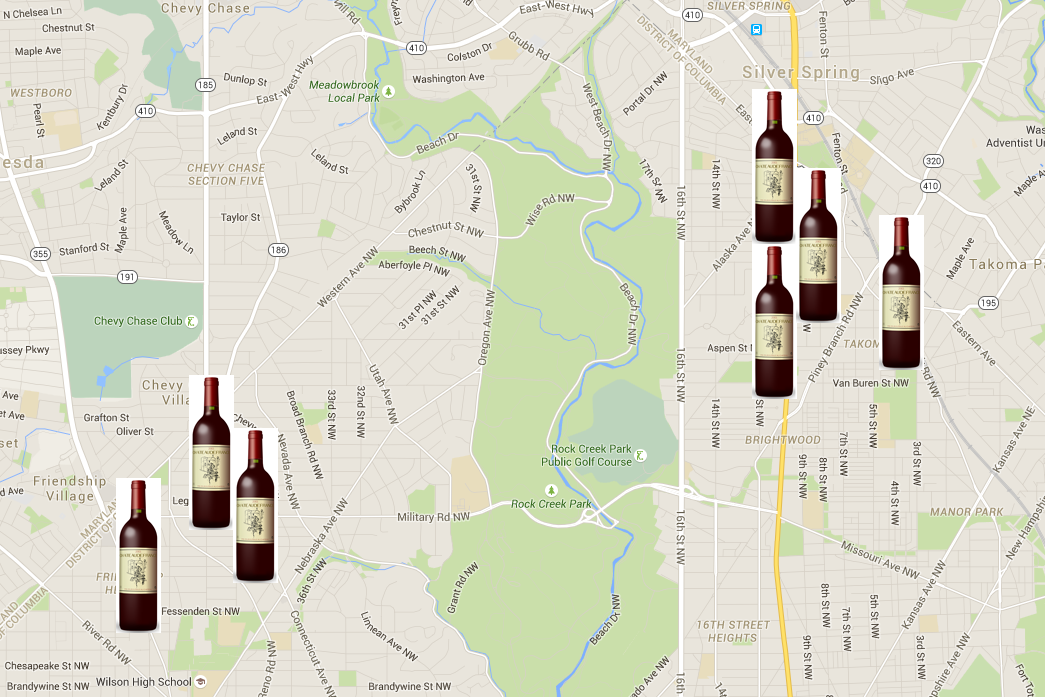Guest Blogger Adam Pagnucco replies to MCGEO’s Gino Renne
My reply to MCGEO President Gino Renne’s response to my post on the county’s Department of Liquor Control (DLC) concludes.
- The union says that if DLC were eliminated, union jobs would be replaced by non-union jobs.
MCGEO: “Mr. Pagnucco claims that privatization would not result in the loss of high paying union jobs. This is his most egregious of claims, especially for a former union employee. Where’s the evidence that ‘many private wholesalers’ are represented by IBT? Or even evidence that union membership will not suffer a net loss? Mr. Pagnucco needs to explain himself on this one.”
I’m happy to do so. As MCGEO states, I am a former union employee. I spent sixteen years working as a strategic researcher on organizing campaigns in the building trades. When President Renne writes, “It’s extremely difficult to organize a union in your workplace these days,” he’s absolutely correct. I have seen the extreme tactics that some employers use to keep their workers from unionizing. If I thought that the only alternative to DLC was a group of exclusively non-union employers, I would have misgivings about that.
Fortunately, that is not the case here. The International Brotherhood of Teamsters has been organizing beverage manufacturers and distributors for more than a century and has a Brewery and Soft Drink Conference to represent their workers. The union is also active in our local area. Washington Wholesale LLC, a distributor in D.C., is organized by Teamsters Local 639. Republic National Distributing Company, the second-largest distributor in the nation, is organized in Maryland by Teamsters Local 355. Reliable Churchill LLLP, the largest distributor in Maryland, is organized by Teamsters Local 570. If DLC loses market share to the private sector, it’s likely that unionized firms like these will pick up at least part of it.
This is deeply troubling to President Renne because non-union workers and Teamsters members have one thing in common: neither group pays dues to MCGEO. And that’s the real issue here.
So here’s a question for President Renne: what would happen if private distributors were allowed to compete with DLC? Restaurants and retailers who are happy with DLC could stay with them. Those who are unhappy could buy from the private sector. If DLC has lower prices as MCGEO claims and if their customer service is improving, they should hold on to most of their market share. If not, why should they be protected by a state-mandated monopoly? What do you say, President Renne? Can your members compete with the Teamsters?
- The union defends the County Council’s proposed “do-nothing fee” for DLC.
MCGEO: “The ‘fee’ Mr. Pagnucco complains about is paid by the distributor to allow for its participation in the Montgomery County market. Its structure has not yet been determined, just that there will be a fee.”
A quick briefer on the do-nothing fee. DLC has many commonly consumed beverages in its regular stock, but it often has trouble filling orders for specialty items it does not usually carry. These are known as special orders. Here’s a typical complaint:
Mike Hill, general manager of Adega Wine Cellars & Café in Silver Spring, said they have problems getting specialty wines and craft beer.
“If we like a beer or wine and we want to bring that into our store, the turnaround time can be eight days if we’re lucky or two to three months to not at all in some cases,” Hill said.
The County Council has recommended that restaurants and retailers be allowed to go directly to private distributors for special orders, but there are two big caveats. First, DLC determines what is in its regular stock and what is a special order. Second, the council wants to allow DLC to collect a fee on any direct sale by a distributor to “replace DLC estimated revenue lost by allowing the sale of special order beer and wines by private wholesalers.”
DLC loves this because it will get paid without having to do any work. Distributors aren’t so crazy about it. They would have to incur the costs of direct delivery to customers (of shipments that in some cases would be very small) and pay the extra fee on top to DLC because… well, the county just wants the money. Multiple distributors predicted in a hearing before the council that the economics would prevent them from participating in such a “reform.”
But the attitude behind the do-nothing fee is itself even worse. Whoever came up with this idea must believe that our county is soooooo much better than all of our neighbors that we can get away with imposing ridiculous impediments to doing business that no one else in our area would dare to do. Well guess what, folks? Residents and businesses have options. MoCo is a great place to live, shop and work, but so are the District, Frederick, Howard, Northern Virginia and most places near here. If you put enough measures in place to punish employers and consumers, they can and will go elsewhere. That’s the problem with the do-nothing fee and, indeed, DLC itself.
Comptroller Peter Franchot, the state’s top enforcer of alcohol laws and a MoCo resident, says of DLC, “Montgomery County is the last bastion of a medieval state system where the county, if you can believe it, sells all the spirits, alcohol, and we’re not just talking retail, we’re talking wholesale… This is a system that is incredibly slanted against the consumer and the ordinary citizen.”
He’s right. Why are we putting up with this? No one else in the Washington metro area has to deal with anything like this. We are the only ones.
It’s time for a revolt. It’s time to End the Monopoly.



